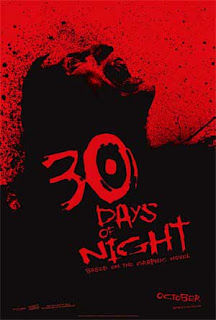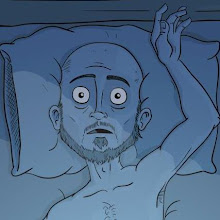
Robert Redford has been in the business quite a long time. He’s been a megastar actor, Oscar winning director, patron of the arts, and founder of the Sundance film festival. His influence on the film industry is enormous, and this year, he returns to the screen, and behind the camera with another politically-charged film,
Lions for Lambs. Another issue-tackling film that attempts to teach as well as entertain, it’s part of a group of films that arrive to our screens in a time where politics has never been more important.
Spreading it’s issues into three separate stories, Lions for Lambs opens with a meeting between a famous reporter, Janine Roth and one of Washington’s most powerful senators, Jasper Irving. The government has just put into action a new strategy for the war on terror, a strategy spearheaded by Irving. Irving hopes he can win over Roth, and through her, the support of the nation. Meanwhile, two Army Rangers, Arian and Ernest, are part of a platoon moving into the highlands of Afghanistan as part of this new strategy. Their helicopter comes under attack and Ernest falls from the helicopter. Arian, Ernest’s long time friend selflessly leaps out of the helicopter to help his friend. And back in the US, Professor Stephen Malley, Arian and Ernest’s college professor, struggles to inspire privileged but apathetic student Todd Hayes.

Lions for Lambs is Redford’s seventh effort as director, and so far, is his most politically ambitious. On a purely cinematical level, it’s a fairly basic film of talking heads. Two of the three segments take place almost entirely in one room, with two characters pontificating their different views on the war on terror, the men behind this war, and society in general. The third segment is the action part of the film. Strangely, the film was written by Matthew Michael Carnahan, writer of the woeful ‘The Kingdom.’ This film seems to be the justification for The Kingdom, the explosions out of his system, Carnahan now writes the film with a brain.
But despite it’s intentions, and they’re clearly very good intentions, there is something inherently lacking in Lions For Lambs. Firstly, the three segments don’t really gel together. The segment between Roth, played by Meryl Streep, and Irving, Tom Cruise presents something in the way of a counter-argument to the segment featuring Malley, Redford and his student, played by Andrew Garfield. Cruise’s Irving is a little too much of the clichéd slimy politician finding any route to the White House. Streep’s character attempts to counter his arguemnts, but ultimately comes off too weak.

The strength of the film is in Redford’s scenes. His Vietnam-vet, now liberal professor rings true, and his convictions are sound. He clearly states his disgust for the cowardly men that send lead his country into a war that has no sign of ending. A war that cannot be justified. He is saddened that two of his students with the most potential have marched to war, inspired by his teachings, yet he admires their reasons for doing so. He simply does not want to see a student with potential squander his promise.
The third segment, that of the two students who went to war, played by Michael Pena and Derek Luke, seems the most contrived. The most interesting part of this story is the flashback to a debate Arian and Ernest sparked off in class, but other than that, this segment feels tacked-on.
While Lions For Lambs is a box-office and critical failure, it’s certainly a noble failure. The performances are all very strong. Streep and Redford are old hands at this, and they’re well cast. Despite the negative press over his private life, Tom Cruise is still an excellent actor, always seemingly at his best when playing characters with highly questionable morals (see Magnolia for Cruise at his career-best). And the performances from Pena, Luke and Garfield are all very strong. But for all this, the film falls flat due to the script. I didn’t hate it as much as some people, but I can understand their complaints. And for now, I think I’ve had my fill of current political films!
 5/10
5/10









 9/10
9/10



 6/10
6/10



 8/10
8/10



 5/10
5/10



 5/10
5/10



 8/10
8/10
